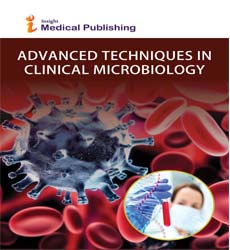Phytochemical screening and antimicrobial activity of some marketed herbal preparations against clinical isolate of salmonella typhi
Abstract
Technology based scientific research in herbal medicine perhaps has some significant impact in addressing some prominent doubts about herbal preparations such as packaging problems, level of hygiene and dosage regimen. Various laboratory researches have been extensively carried out to screen the efficacy of traditional concoction generally against several causative agents of diseases â??in vitroâ?ÂÂ and â??in vivoâ?ÂÂ which gave significant result. One of such research worth of note is that against Salmonella typhi (Nnaemeka, 1991). Laboratory experiments were conducted to Screen out five different mixtures of Herbal Preparations against clinical isolates of Salmonella typhi in-vitro. The preparation were extracted using water and Ethanol as solvent. Extracts were subjected to Phytochemical screening and Antimicrobial activity on clinical isolates of Salmonella spp. The Phytochemical screening indicated the presence of Carbohydrates, Glycosides, Saponins, Steroids, Triterpenes, Tannins, Flavonoids and Alkaloids. The Aqueous extract was more inhibitory to the test isolates with activity observed in all the five mixtures of the herbal preparations, while the Ethanol extracts of two mixture showed inhibition against the test isolate. The Minimum Inhibitory Concentrations (MIC) and Minimum Bactericidal Concentrations (MBC) of the aqueous extract were found to fall within the range conc. of 18.75mg/ml and 37.5mg/ml while that of Ethanol extract was at the range of 9.375mg and 37.5mg/ml. It is therefore concluded that the herbal preparations have great potentials as source of remedy against typhoid fever and other forms of Salmonellosis.
Open Access Journals
- Aquaculture & Veterinary Science
- Chemistry & Chemical Sciences
- Clinical Sciences
- Engineering
- General Science
- Genetics & Molecular Biology
- Health Care & Nursing
- Immunology & Microbiology
- Materials Science
- Mathematics & Physics
- Medical Sciences
- Neurology & Psychiatry
- Oncology & Cancer Science
- Pharmaceutical Sciences
